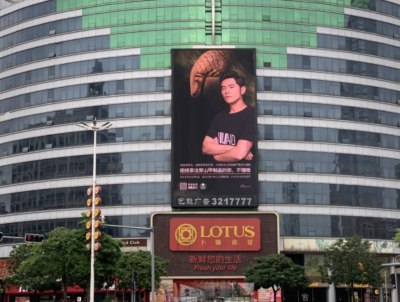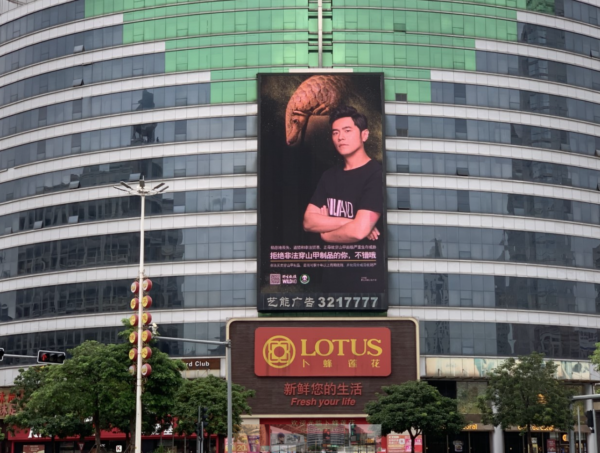
In the wake of the COVID-19 pandemic, global calls have been intensifying to end the illegal wildlife trade and prohibit sales of live wild animals in markets around the world. Last week, the highest echelon of China’s government announced it will strictly enforce recently revamped wildlife protection laws to protect national security.
During the recently concluded National People’s Congress (NPC) meeting, Premier Li Keqiang reported there will be “severe punishment for illegal hunting and trading of wild animals.” In a follow-up meeting of the NPC’s Standing Committee, its chairman, Li Zhanshu, announced he will personally lead four teams of inspectors across eight provincial-level regions in China where wildlife trafficking is pervasive.


The announcement from the Standing Committee signals an escalation in the government’s efforts to crack down on the illegal wildlife trade as the top legislative body and will oversee the regulatory improvements undertaken by the National Forestry and Grassland Administration (NFGA), which regulates farming and trade in terrestrial wildlife as well as wildlife quotas in the traditional medicine industry. The Ministry of Ecology and Environment (MEE) is also involved in the oversight, signaling yet another check on the industry and wildlife management systems.
“WildAid applauds China on updating its regulations, strengthening enforcement, and increasing public awareness, which are all needed to effectively shut down the illegal wildlife trade,” said WildAid Chief China Representative Steve Blake. “These steps are only the beginning of what we need to do, though. To significantly improve wildlife conservation, protect national security, and reduce the risk of zoonotic disease, we really need to reevaluate our whole relationship with nature and wildlife.”
As part of its efforts to tighten regulations on wildlife protection, last week China’s Ministry of Agriculture and Rural Affairs released its official ‘livestock list’ – species that can be bred, farm-raised, transported, and traded for food consumption purposes. This revision means species previously bred for food consumption, such as bamboo rats and civets, can no longer be legally raised and sold.
The illegal wildlife trade, with an estimated trading volume of USD $23 billion per year, is not just a problem of wildlife protection or animal welfare. It also threatens biodiversity, national security, the global economy, and public health, all of which have been demonstrated this year.
With heightened attention on wildlife consumption due to its potential connection to the COVID-19 outbreak, WildAid has redistributed hundreds of billboards throughout China with health messages from Jay Chou about consuming pangolin meat in high-traffic transportation hubs as well as on social media. Our statement commending the NPC and providing recommendations for next steps was sanctioned by the government as it was printed in state-owned media outlets, the China Daily and the prominent local outlet, The Paper. WildAid is calling for a permanent end to all wildlife markets, strengthened penalties and sentencing for wildlife crime, and increased public awareness.
WildAid has found that thus far, Qiaodong Market in Guangzhou, which used to slaughter live animals, is no longer doing so. All the markets have clear signage stating that the sale of live animals is prohibited.
While China acted quickly to temporarily close down all sales of wildlife, the country alone cannot solve the problem. In 2016, the United Nations Office on Drugs and Crime released the first World Wildlife Crime Report that analyzed nearly 7,000 species in the World WISE database. The results showed that no single country accounts for more than 15% of total seizures, reinforcing the fact that we need a global movement to reevaluate our relationship with wildlife consumption.
Together, with our NGO partners across Asia and Africa, WildAid calls on governments to permanently ban the commercial trade, transport, and consumption of wild animals.
Stay in touch and get the latest WildAid updates.
SIGN UPAbout WildAid
WildAid is a non-profit organization with a mission to protect wildlife from illegal trade and other imminent threats. While most wildlife conservation groups focus on protecting animals from poaching, WildAid primarily works to reduce global consumption of wildlife products such as elephant ivory, rhino horn and shark fin soup. With an unrivaled portfolio of celebrity ambassadors and a global network of media partners, WildAid leverages more than $308 million in annual pro-bono media support with a simple message: When the Buying Stops, the Killing Can Too.
Journalists on deadline may email communications@wildaid.org